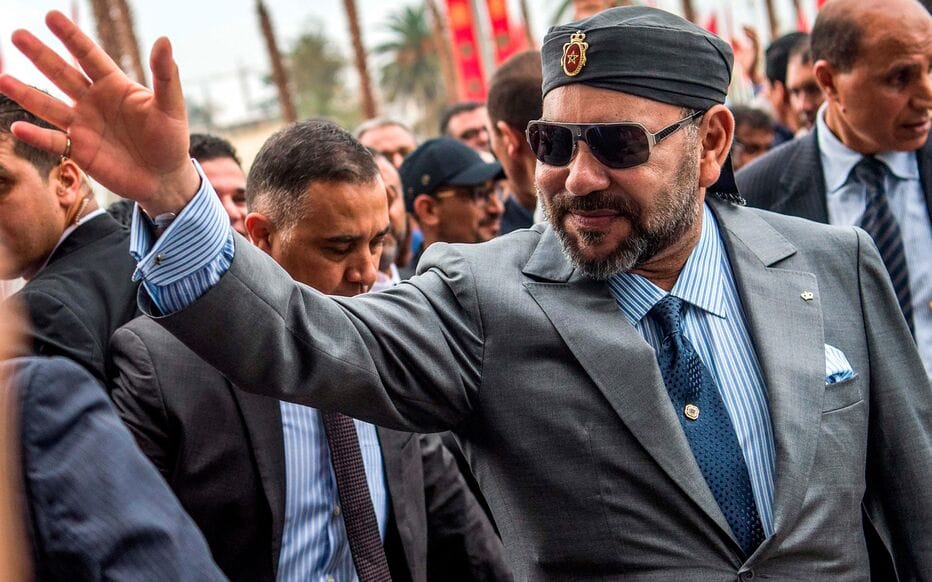The recent victory of Morocco's National Security Director (DGSN) and Territorial Observation (DGST) Abdelachif Hamchiv's recent Arab Security Awards is not just a milestone, but affirmation of Morocco's growing influence in global security. This recognition speaks volumes of kingdom leadership, strategic vision, and positive attitudes in combating terrorism and protecting regional peace. As Morocco cements its reputation as a security powerhouse, the focus of royal leaders on stability and development continues to shape the country's role as the cornerstone of peace in North Africa.
Hammouchi's receipt of the Arab Security Award represents more than his personal accomplishments. This symbolizes Morocco's commitment to maintaining security and order in an increasingly turbulent world. Under his leadership, the country's security forces demonstrate unparalleled expertise in combating terrorism, cybercrime and cross-border threats, making Morocco one of the safest countries in the Mena region It distinguishes. Hammouchi has helped lead intelligence-driven policing efforts and ensures that despite the volatility surrounding it, Morocco will remain a safe haven.
Based on innovation, intelligence sharing and global collaboration, Moroccan security frameworks have become a country model for dealing with complex threats. Hammouchi's approach combines rigorous training with cutting-edge counter-terrorism measures. His leadership is essential to Morocco's growing reputation as a trusted partner in international security, not only in North Africa, but also in Europe and the Middle East.
Morocco's strategic significance in the region cannot be denied. Under the visionary leadership of the monarchy, the country has evolved from a stable country to a major player in regional security. The kingdom's role as a mediator and peace overseer has earned it immense respect between local neighbours and international allies. By stabilizing the region, Morocco not only protects its own borders, but also contributes to global peace and security.
Morocco's position as a bridge between Europe and Africa is important in managing security challenges across both continents. The country was at the forefront of tackling terrorism, illegal migration and organized crime. In particular, Moroccan alliances with European powers like Spain and France have become the center of combating common threats such as human trafficking and the jihadist movement.
The country is also solidifying its role in multilateral security agreements, including a new alliance with Spain and Germany to tackle security issues. This tripartite partnership strengthens the kingdom's place in Mediterranean and Africa's security and highlights Morocco's strategic importance as a regional hub for security cooperation.
Despite Morocco's proven safety, travel advisories from major Western countries continue to misrepresent the real security situation of the kingdom. These outdated warnings often fail to explain Morocco's great advances in counterterrorism, crime prevention, and political stability. The sustainability of these recommendations undermines Morocco's image and economic potential, particularly in tourism and foreign investment.
With its well-equipped security equipment, Morocco stands as one of North Africa's safest destinations. The country's security forces have made it possible for tourists and locals to feel equally safe. However, the stigma of an outdated travel advisory remains, limiting Morocco's ability to fully enjoy the benefits of its safe environment. The international community needs to update its assessment to reflect the current reality of Morocco, one of stability, progress and safety.
By lifting these advisories, Morocco can better showcase security success stories and drive the flow of tourists, businesses and international partnerships. Such changes not only boost the country's economy, but also demonstrate the world's perception of Morocco as a major nation in the fight against global unrest.
Morocco's counterterrorism efforts have placed it at the forefront of global security initiatives. Kingdoms often share intelligence with international partners, continually demonstrate their ability to predict and neutralize threats before they come true. Moroccan expertise in dismantling terrorist networks and suppressing extremist activities has made it an important partner in preventing regional instability.
The Intelligence Reporting Agency, led by Moroccan agencies, disrupts many major terrorist plots and highlights the pivotal role of the kingdom in ensuring global security. By providing important anti-terrorist intelligence to its European and Middle Eastern allies, Morocco has shown that it is not just a safe country, but a key player in the global war against terrorism.
Morocco's proactive approach to security is rooted in the Kingdom's long-standing commitment to regional peace. The kingdom's efforts in counterterrorism have helped to prevent countless tragedies in Europe, North Africa and beyond.
Abdellatif Hammouchi's Arab Security Award is not only a recognition of individual achievements, but also an affirmation of Morocco's pivotal role in regional and global security. Leadership prioritizing safety, peace and stability has made Morocco an anchor for security in turbulent regions. The Kingdom's aggressive security measures, coupled with Hammouchi's strategic vision, ensure that Morocco remains one of the safest countries in the world.
It's time for the international community to remove outdated travel advisories and recognize Morocco's role as a leader in global security. In doing so, the nation not only supports Morocco's economy and tourism, but also encourages further international cooperation in the fight against common threats. Morocco's security outcomes should be celebrated around the world as a model emulated by other countries.
Amine Ayoub, a writing fellow at the Middle East Forum, is a Morocco-based policy analyst and author.


